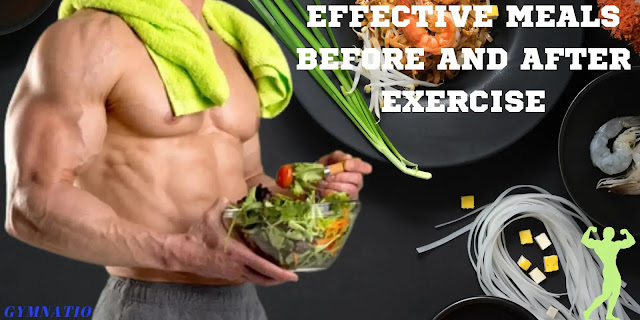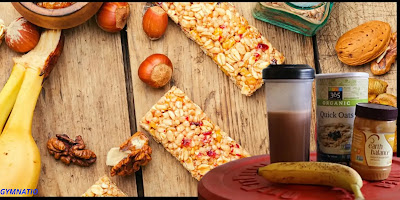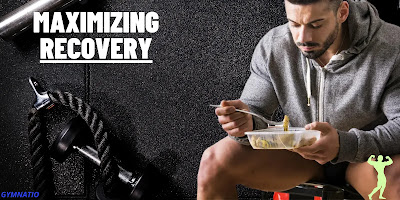Why Peri-Workout Nutrition Matters?
Peri-workout nutrition fueling your body before, during, and after exercise ensures your muscles have the energy to perform and recover. Key benefits include:*Enhanced energy and endurance* during workouts.
*Reduced muscle breakdown* and faster repair.
*Optimal glycogen replenishment* for sustained gains.
Ignoring this window can lead to fatigue, slower progress, and missed opportunities for growth.
Pre-Workout Nutrition: Fuel for Performance
The Science Behind Pre-Workout Meals
A balanced pre-workout meal primes your body with:- (Carbohydrates): Low-glycemic options (e.g., oats, sweet potatoes) provide steady energy.
- (Protein): Lean sources (e.g., chicken, Greek yogurt) support muscle preservation.
- (Fats): Minimal to avoid digestive slowdown (save fats for non-training meals).
Timing Guidelines
- *1–1.5 hours before training*: Balanced meal (carbs + protein).- *30 minutes before*: Light snack (e.g., banana + protein shake).
- *2+ hours before*: Larger meal with healthy fats (e.g., salmon + quinoa).
Pre-Workout Meal Ideas
1–1.5 hours: (Oatmeal with protein powder, banana, and peanut butter.)
2 hours : ( Grilled salmon, roasted sweet potato, and steamed greens)
30 minutes : (Whey protein shake + handful of grapes.)
Avoid
High-fiber veggies, fatty cuts of meat, or spicy foods that may cause
discomfort.
Intra-Workout Nutrition: When to Supplement
While not essential for everyone, intra-workout nutrition can benefit those:- Training fasted.
- In a calorie deficit.
- Doing sessions longer than 60–90 minutes.
What to Consume?
*Carbs*: 0.5g per minute of exercise (e.g., sports drink).*Protein*: 5–10g of essential amino acids or whey isolate (optional).
Post-Workout Nutrition: Maximizing Recovery
The Role of Post-Workout Meals
Post-exercise, focus on:
- Protein: 0.5g per kg of bodyweight (e.g., 30g for a 60kg athlete) to
repair muscles.
- Carbs: 0.5–1.5g per kg of bodyweight to refill glycogen (adjust based on goals).
- Fats: Limit to 10–20g if eating within the 4–5 hour nutrient window.
- Carbs: 0.5–1.5g per kg of bodyweight to refill glycogen (adjust based on goals).
- Fats: Limit to 10–20g if eating within the 4–5 hour nutrient window.
Timing
Aim to eat within 2–3 hours post-workout, but prioritize consistency
over urgency.
Meal Type (Examples)
Post-Workout Meal Ideas
Quick & Easy: (Chocolate milk + rice cakes.)
Meal-Prep Friendly: (Ground turkey, jasmine rice, and roasted veggies.)
Vegetarian Option: (Tofu stir-fry with quinoa and steamed broccoli. )
On-the-Go: (Greek yogurt parfait with berries and honey.)
Sample Meal Plan for a 70kg Athlete
- Pre-Workout (2 hours prior): 150g grilled chicken, 1 cup sweet potato, 1 cup spinach.- Post-Workout (within 2 hours): 30g whey protein shake, 1.5 cups white rice, 1 kiwi.
- Dinner: Salmon fillet, 1 cup quinoa, roasted Brussels sprouts.
Cutting Tip: Reduce carbs to 0.5g per kg post-workout; increase protein slightly.
Common Mistakes to Avoid
1. Skipping Carbs Post-Workout: Slows glycogen replenishment and recovery.2. Overcomplicating Meals: Keep it simple stick to lean protein, carbs, and veggies.
3. Neglecting Hydration: Dehydration reduces strength and endurance.
4. Eating Too Close to Training: Causes cramps or sluggishness.
5. Ignoring Whole Foods: Supplements help but shouldn’t replace real meals.
Tools for Success
- Macro Tracking Apps: Use apps like *MacroFactor* to monitor protein, carbs, and fats.- Meal Prep Containers: Invest in portion-controlled containers for consistency.
- Hydration Reminders: Set hourly alerts to drink water.
FAQS
Can I train fasted?Only for light cardio. Weightlifting requires pre-fueling for energy and muscle protection.
Is peanut butter good post-workout?
Save it for later its fat content slows nutrient absorption. Opt for carbs + protein instead.
What if I work out late?
Eat a light meal (e.g., casein protein + oats) before bed to prevent muscle breakdown overnight.
Conclusion
Optimizing your pre- and post-workout nutrition doesn’t require gourmet meals or rigid timing just smart, strategic choices. Prioritize *low-glycemic carbs*, *lean protein*, and *hydration*, and adjust portions based on your goals (bulking, cutting, or maintaining). By aligning your meals with your training, you’ll recover faster, train harder, and see results sooner.Ready to take action?Visit the article*How many meals a day do i need to build lean muscle ?* tailored to your fitness goals!




